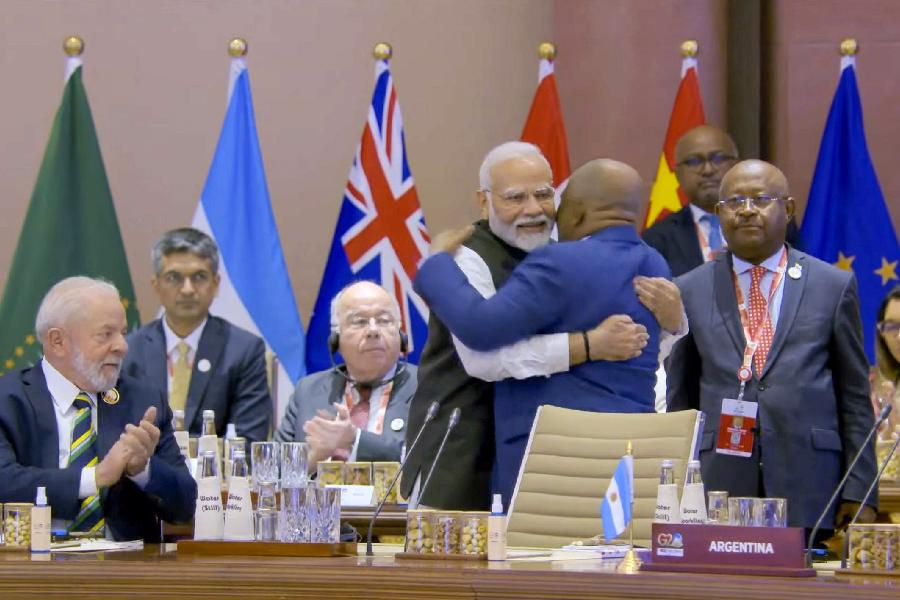More than two decades after it was conceived, the G20 is now, in effect, the G21 grouping of leading economies after the African Union was included as a full member in New Delhi last weekend. India, which championed the move, can legitimately claim credit for the AU’s diplomatic elevation. The Indian government’s push for the African bloc’s membership, led by the prime minister himself, is undoubtedly a powerful example of the ways in which India seeks to position itself as a leading voice of the Global South. Yet New Delhi must navigate a complex and bumpy geopolitical landscape with care and ambition in equal measure if it is to capitalise on this moment and truly strengthen its partnership with African nations in a manner that benefits them as well as India. It must play to its many strengths, from strong people-to-people ties and anticolonial bonds to its status as a rising economic and geopolitical power with an independent foreign policy.
Getting Africa to view India as a preferred friend will be challenging, given the deep and unmatched influence that New Delhi’s biggest global rival, Beijing, wields on the continent. Overall, China is the leading trading partner of the African continent. While the European Union as a bloc carries out more trade with North Africa, China dominates trade with sub-Saharan Africa. Between 2012 and 2022, Chinese investments in Africa created more jobs than investments from any other nation. Beijing is today also the biggest lender to African nations, several of which are battling deep economic crises. On the one hand, that might make it hard for African governments to rebuff any direct or indirect pressure from China to act against Indian interests. But at the same time, there are growing signs that many African nations want to reduce their dependence on any one nation and diversify their relations.
India must take this opportunity. Already, it is Africa’s third-largest trading partner after China and the EU, ahead of the United States of America. India is among the top five global investors in Africa, with interests in oil and gas rigs, mining projects, infrastructure development, agriculture and more. There is much more that India should do. Diplomatically, it must pitch New Delhi as an alternative pillar to the new Cold War between the West and China. It must also formalise a structured partnership with the AU to jointly tackle shared threats like climate change, which is wreaking havoc — the floods in Libya and the drought in Somalia, Ethiopia and Kenya are some examples — and food insecurity, which affects prices, health and political stability. India’s partnership with the AU can also amplify calls for reform in institutions like the United Nations and the International Monetary Fund. In the past, India has let momentum in its ties with Africa slide: the India-Africa summit, which was meant to be held every three years, was last held in 2015. It must not repeat that mistake.










